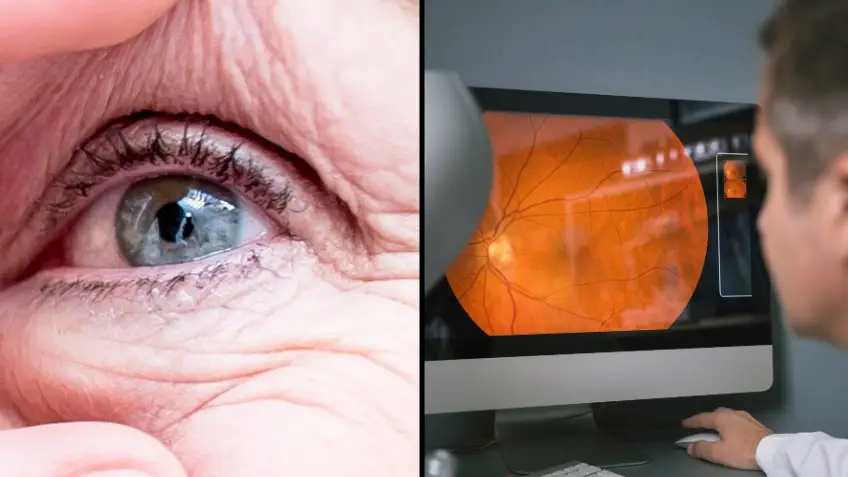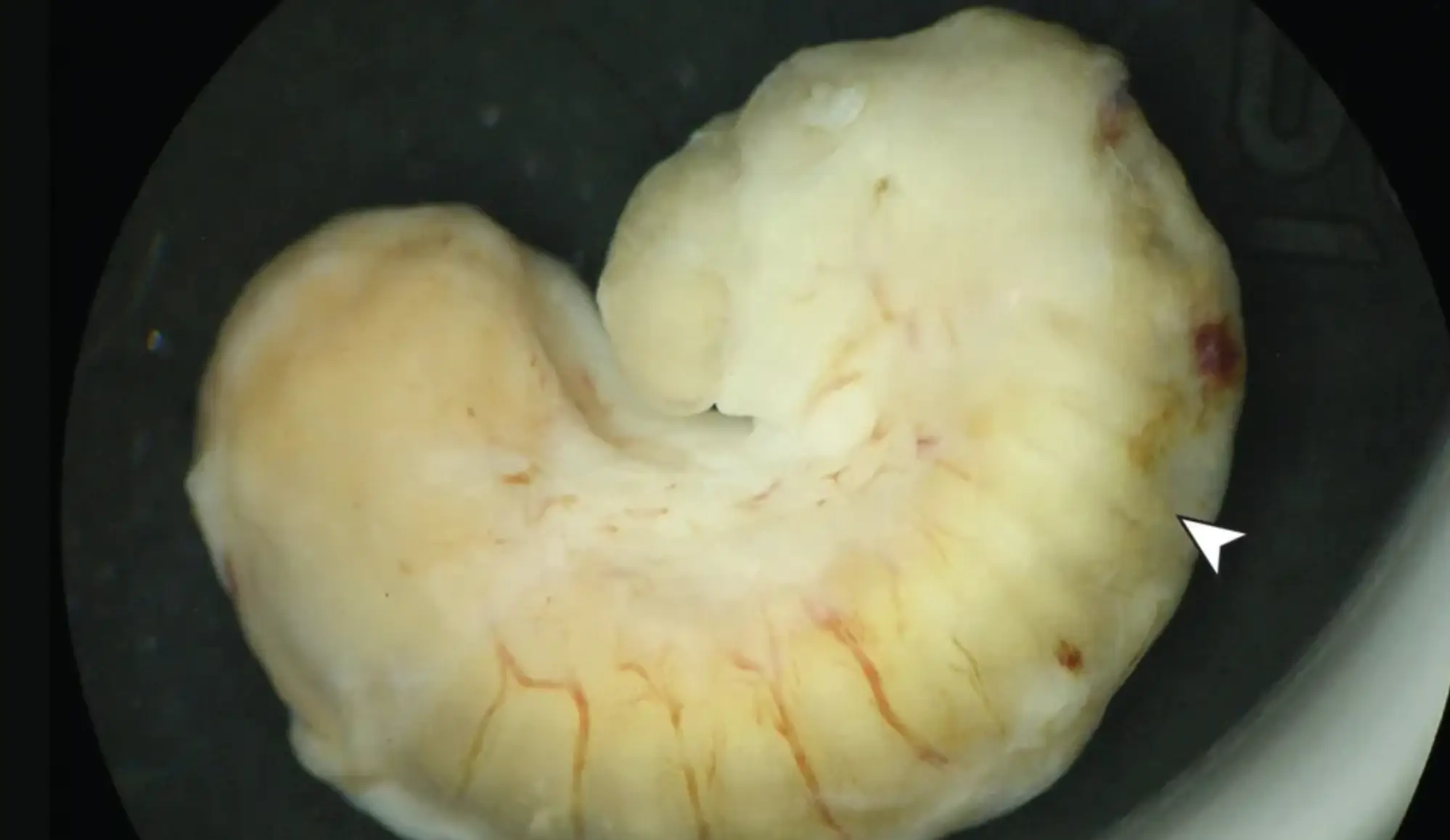
Doctors were left in shock when they made a grim discovery in a patient's eye.
When a 28-year-old woman discovered a slowly growing lump in her eye, she sought medical advice.
But medics were shocked when they noticed the lump was actually moving.
The woman, from Basankusu in Congo, said the lump had grown considerably over the last couple of years.
Advert

After she sought advice from doctors, the team managed to remove the lump, which actually turned out to be a parasite measuring a whopping half an inch.
Tests revealed that the woman had been suffering from ocular pentastomiasis - which is a rare infection caused by a parasite that's sometimes passed from reptiles to humans.
The creature is also known as tongue worm, and is most commonly passed on to humans if they come into contact with infected snakes or undercooked meat.
However, the woman was adamant she hadn't done either.
"She was used to eating crocodile meat," doctors wrote in JAMA Ophthalmology.
"No case of ocular infection has ever been reported in individuals who eat crocodile meat, but crocodiles can be infected by pentastomids.
"Therefore, there's a possibility the infection happened when the woman ate crocodile meat containing parasite eggs.
"This meat could also have been contaminated via infected snake meat on a market stall."
Writing in a report published on 11 April, the authors explained that the woman had presented with no other symptoms other than the lump.
Upon removing the parasite, they found a pale, C-shaped larva and after sending it off for analysis, it was found to be a species named Armillifer grandis.

Snakes are often hosts to the parasite as they enter the final stage of their life cycle.
They lay eggs in the respiratory tracts of snakes, which then leave the reptiles via the mouth or digestive tract.
They are then picked up by small animals, which are often prey for the likes of pythons and vipers. The snakes then eat the larva which completes its life cycle.
If the parasite does end up infecting humans, they often target internal organs. In fact, eye infections from the particular species are rare, but easier to spot due to the lump and other symptoms such as vision changes.
The authors of the report are now warning doctors to look out for other patients.
"Ophthalmologists should consider the diagnosis in patients coming from endemic countries," they wrote.
"Higher awareness for this rare but sometimes heavily symptomatic disease seems warranted."
Methods of preventing infection include wearing gloves and washing hands after coming into contact with reptiles, as well as avoiding undercooked reptile meat.
Topics: Health, World News
